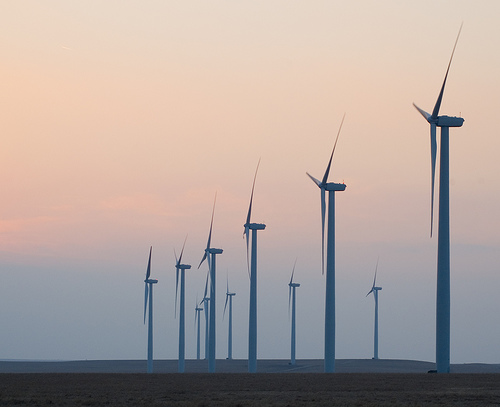I was sitting on a plane from Washington to Johannesburg last July when I struck up a conversation with a fellow traveler sitting across the aisle from me. As any sane person would do on this 18-hour-long flight, I began to inquire about his vocation and why he was heading to South Africa in the dead of winter. He said his final destination was, in fact, Maputo and he was going to meet up with his church group who had left a couple weeks earlier to build homes for the poor in Mozambique and Swaziland. As an eager environmental policy graduate student, I seized on this opportunity to ask about his particular church’s stance on poverty alleviation and its relationship to global climate change. I was only half way through my spiel when he casually dismissed my question and said, “I don’t believe in climate change… but I do believe in creation care.” Needless to say, I was a little stunned.
A full year has passed since this particular encounter and I am still trying to figure out the role of creation care in our current climate discourse. After arriving at MIT in August, I began to be more interested in how values and social contexts shape the scientific enterprise, especially at an institution that prides itself on being at the forefront of science and technology. I came upon a dissertation titled “Spinning Climate Change: How Groups are Using Media, Science, and Public Relations to Engage the American Public” by Candis Callison, who was a doctoral student at MIT’s Program in History, Anthropology, and Science, Technology, and Society (HASTS) and has since taken up a teaching position at the University of British Columbia’s Graduate School of Journalism. The crux of her dissertation’s argument was that different groups tend to view global change in different social contexts (i.e. creation care) and, in particular, how these groups rationalize the climate change debate using particular vernaculars that are most in sync with their values and understandings of the world.

Fast forward to last week, when the New York Times ran an article titled, “In Kansas, Climate Skeptics Embrace Cleaner Energy” (October 18, 2010) by Leslie Kaufman, where she highlighted the creation care movement in Kansas and how the groups she chronicled were often reluctant to accept anthropogenic climate change as a genuine phenomenon. Instead, the article found a small non-profit (the Climate and Energy Project, based out of Lawrence, Kansas) that began to employ strategies for promoting energy efficiency and conservation using distinctly “Kansan” cultural vernaculars, such as focusing on ideas of thrift, patriotism, spiritual conviction, and economic prosperity rather than introducing highly politicized debates of climate change and of greenhouse gas regulations. In the end, the article documented some shifts in attitudes towards energy usage that led to declines in consumption and an embrace of greener technologies.
When scientists and policymakers talk about climate change, the dialogue is often laced with ideas and vernaculars heavily embedded in certain social norms and cultural contexts. Science, ultimately, is a socially bounded and constructed enterprise with a fair amount of uncertainty and an abundance of continuing discourses. Still, as a graduate student heavily involved in the climate community, I have absolutely no intention in suggesting that climate science is hokum, but I do wish to show that the examples of creation care and the climate skeptics in Kansas both allude to different sets of vernaculars that can be employed to deal with the same problem (i.e. climate change). Again, I am not putting a qualitative judgment on which vernacular is more “truthful” or “worthy,” but one must recognize that the climate change debate—regardless of which “side” one falls on—employs heavily politicized vernaculars laced with culturally- and socially-embedded assumptions.
One can continue to theorize why large sectors of the American populace continue to not believe in anthropogenic climate change, but most of us (even shortsighted capitalists) can agree on the basic needs of increasing energy security, promoting the green economy, and protecting the Earth’s ecology for future generations. So the challenge, then, is to figure out how the nation as a whole can transcend this particular vernacular divide and to work through very “messy” and highly politicized cultural and scientific languages to pursue these generally accepted goals for our nation’s continued prosperity. The example from Kansas, therefore, shows points of achievable reconciliation and should be a lesson to us all.
Of course, how I have come to frame this particular debate on the politicization of the climate vernacular is also heavily laced with my own naïveté and idealist assumptions. The difficulty in interpreting and dealing with the fluidity of social contexts and cultural assumptions may be troubling for my fellow positivists, but that discussion will have to come at another time…
Written by ERIC.
